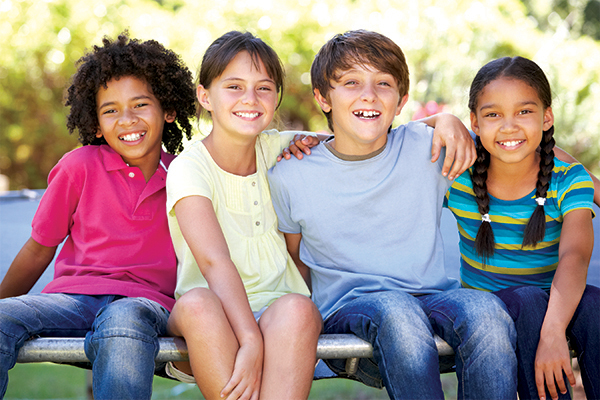iFriend: A Social Skills Group

Questions for Parents and Caregivers
- Does your child have difficulty making friends?
- Is your child rigid and inflexible, always wanting to do things his or her way?
- Is your child shy and timid, often avoiding social interactions?
- Does your child tend to miss social cues, annoy others, act inappropriately, or use humor at the wrong time?
If you answered yes to any of these questions, iFriend could help your child.
iFriend is a social skills group for children in elementary school, ages 8 to 11. The program helps children develop friendship skills, learn how to converse better with peers, and cope with frustration. Parents also learn strategies to help children integrate social skills into daily life at home, school, and play. The goal of the program is for children to become more socially competent, confident and friendly.
Eligible children are invited to participate in a 10-week social skills program, where they will learn skills along with their peers through games, role-playing, team-building challenges, and group activities. Parents will meet separately to learn how to encourage and support skills practice outside the group sessions.
Registration is open year-round. Groups are filled based on the child’s needs, fit for the program, and the age of members beginning the next group cycle.
Facilitators
- Parent group leader: Beverly Rich, DNP, APRN, BC
- Child group leader: Amy Kaye, PhD
Mindful Teen Skills Group
The Mindful Teen Skills Group is a 14-week multi-family skills-based group utilizing a dialectical behavior therapy (DBT) informed approach. The group aims to help individuals effectively manage their emotional experiences to live healthier and more satisfying lives.
Group is intended for teens ages 13 to 18 years old (attending grades 8 to 12) who are participating in weekly or biweekly individual therapy and who could benefit from additional support around managing distress, regulating emotions, and eliminating self-destructive behaviors.
Groups meet weekly in person. At least one caregiver is expected to participate along with their teen to review skills and support the use of skills outside of group sessions.
Each week, teens and their caregivers meet together to learn and practice new skills in the following areas:
- Mindfulness: Being present in the moment.
- Emotion Regulation: Understanding emotions and building pleasant experiences and emotions.
- Distress Tolerance: Coping with extreme emotions and managing urges to engage in behaviors that are life-threatening and/or make difficult situations worse.
- Interpersonal Effectiveness: Navigating relationships to confidently assert one’s needs and manage conflict while maintaining respect for yourself and others.
- Walking the Middle Path: Teen and parents learn how to validate one another, compromise and negotiate, and see the other’s perspective.
Facilitators:
For more information or to register, call Bradley Hospital’s Outpatient Department at 401-432-1119 or email [email protected].
